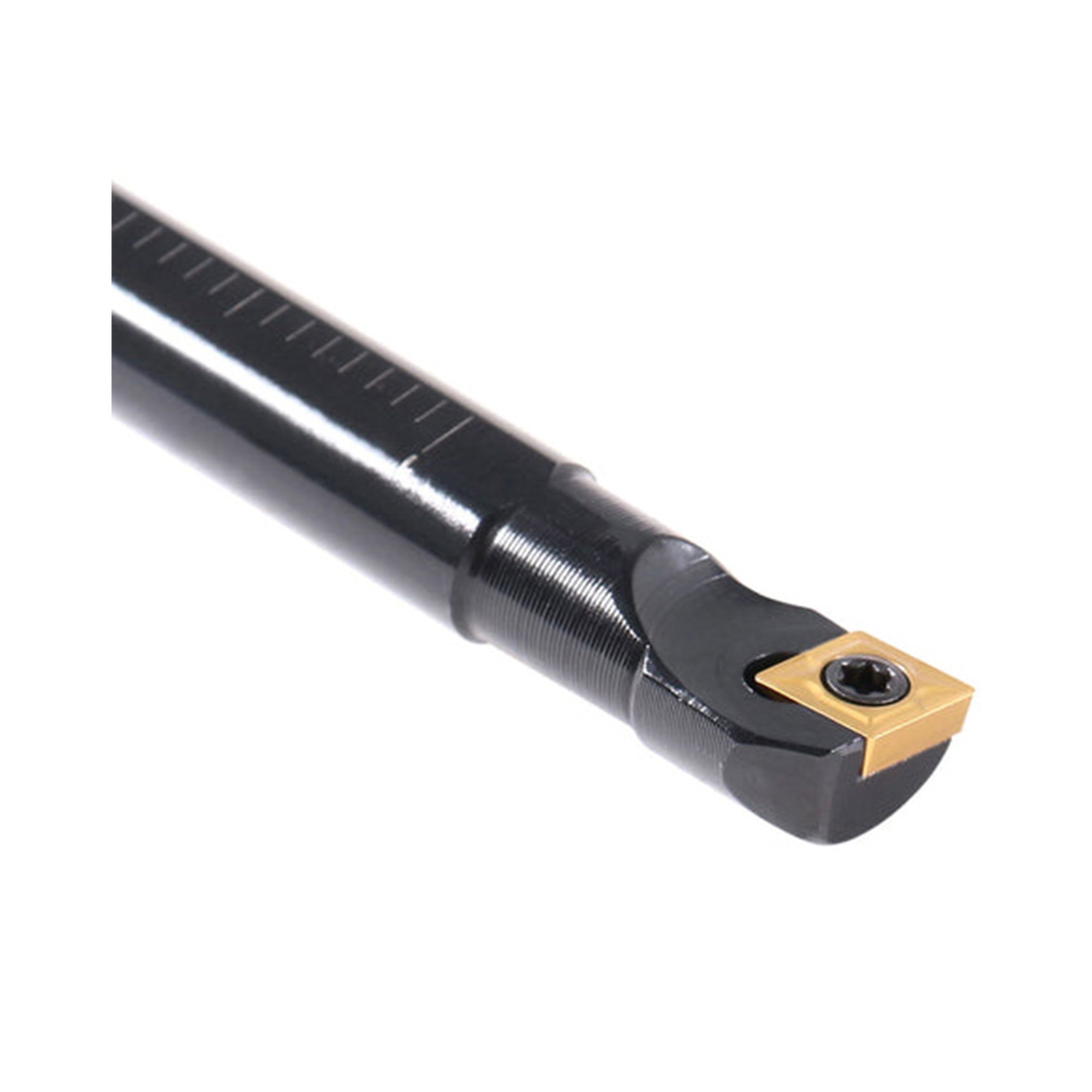morse taper adapter Factory
Looking for a reliable Morse Taper Adapter Factory? This comprehensive guide explores everything you need to know about Morse Taper Adapters, from understanding their types and applications to selecting the right manufacturer. Learn about materials, precision, customization options, and quality control to ensure you get the best adapters for your machining needs.
Understanding Morse Taper Adapters
Morse Taper Adapters are essential tools in machining, facilitating the use of tools with different taper sizes within the same machine spindle. They bridge the gap between a machine's Morse Taper and the tool's Morse Taper, enhancing versatility and reducing the need for multiple machines or specialized tooling.
What is a Morse Taper?
A Morse Taper is a standardized system for fitting cutting tools such as drill bits and reamers into the spindles of machine tools. It's a self-holding taper, meaning that the friction between the tool and the spindle is sufficient to hold the tool in place during machining. The Morse Taper system includes several sizes, designated MT0 through MT7, with each size having a specific taper angle. Different machines have different Morse Taper sizes, and Morse Taper Adapters allow using tools with smaller tapers in machines with larger tapers.
Types of Morse Taper Adapters
Morse Taper Adapters come in various configurations to suit different needs:
- Sleeves: Increase the size of a Morse Taper. For example, a sleeve might allow you to use a MT2 tool in an MT3 spindle.
- Sockets: Decrease the size of a Morse Taper. They enable the use of a larger shank tool in a smaller spindle.
- Drift Key Adapters: Designed with a slot to accommodate a drift key for easy tool removal.
- Tang Type Adapters: Feature a tang (a flat projection) on the small end for positive drive and easy removal.
- Tanged and Threaded Adapters: Combine a tang for positive drive with a threaded end for added security, typically used in high-torque applications.
Applications of Morse Taper Adapters
Morse Taper Adapters are used in various machining applications, including:
- Drilling: Adapting drill bits of various sizes to fit different drilling machines.
- Reaming: Ensuring accurate and consistent hole finishing with different reamer sizes.
- Tapping: Allowing the use of tapping attachments and tools with varying Morse Taper shanks.
- Milling: Adapting milling cutters and arbors to fit milling machine spindles.
- Lathe Work: Supporting workpieces between centers or adapting tailstock tooling.
Selecting the Right Morse Taper Adapter Factory
Choosing the right Morse Taper Adapter Factory is crucial for ensuring quality, precision, and reliability. Here are key factors to consider:
Material Quality
The material used in manufacturing Morse Taper Adapters significantly impacts their durability and performance. Common materials include:
- High-Speed Steel (HSS): Offers good wear resistance and toughness, suitable for general-purpose machining.
- Alloy Steel: Provides increased strength and hardness, ideal for demanding applications.
- Carburized Steel: Surface-hardened steel that offers exceptional wear resistance while maintaining a tough core.
Verify the material specifications and ensure that the Morse Taper Adapter Factory uses certified materials from reputable suppliers. At Wayleading Tools, we prioritize high-quality materials to ensure the longevity and performance of our Morse Taper Adapters.
Precision and Accuracy
Morse Taper Adapters must be manufactured to precise tolerances to ensure accurate tool alignment and performance. Look for factories that employ advanced machining techniques and quality control processes to maintain dimensional accuracy. The taper angle and surface finish are particularly critical. Inaccurate tapers can lead to tool slippage, vibration, and poor machining results.
Customization Options
Depending on your specific requirements, you may need custom Morse Taper Adapters. A reputable Morse Taper Adapter Factory should offer customization options, including:
- Specific Taper Sizes: Adapting between non-standard or less common Morse Taper sizes.
- Length Modifications: Adjusting the length of the adapter to suit specific machine setups.
- Material Selection: Choosing specific materials based on application requirements.
- Surface Treatments: Applying coatings or treatments to enhance wear resistance or corrosion protection.
Quality Control
A robust quality control process is essential for ensuring that Morse Taper Adapters meet the required specifications. Look for factories that implement rigorous inspection procedures throughout the manufacturing process, including:
- Material Inspection: Verifying the quality and properties of incoming materials.
- Dimensional Inspection: Checking the accuracy of dimensions and taper angles.
- Surface Finish Inspection: Evaluating the surface finish and smoothness.
- Hardness Testing: Ensuring the material hardness meets specifications.
- Final Inspection: Conducting a final inspection to verify overall quality and compliance.
Factory Certifications
Certifications such as ISO 9001 indicate that the Morse Taper Adapter Factory has a documented quality management system in place. These certifications provide assurance that the factory adheres to international standards and is committed to quality and continuous improvement. As a leading provider, Wayleading Tools has obtained the ISO 9001 certification, guaranteeing high-quality manufacturing processes.
Working with a Morse Taper Adapter Factory
Once you've identified a potential Morse Taper Adapter Factory, it's important to establish a clear line of communication and define your requirements. Here are some tips for working effectively with a factory:
- Provide Detailed Specifications: Clearly communicate your requirements, including taper sizes, materials, tolerances, and any special features.
- Request Samples: Ask for samples to evaluate the quality and performance of the adapters.
- Discuss Lead Times: Clarify the lead times for production and delivery.
- Negotiate Pricing: Discuss pricing and payment terms upfront.
- Establish a Quality Agreement: Define the quality standards and acceptance criteria.
Troubleshooting Common Issues
Even with high-quality Morse Taper Adapters, occasional issues may arise. Here are some common problems and how to address them:
- Tool Slippage: Ensure the adapter and tool are clean and free of debris. Check the taper angle and surface finish. Use a drawbar or retention knob for added security in high-torque applications.
- Vibration: Verify that the adapter is properly seated in the spindle. Check for runout or imbalance in the tool or adapter.
- Difficult Tool Removal: Use a drift key to safely remove the tool from the adapter. Ensure the drift key is the correct size for the adapter slot.
- Adapter Damage: Inspect the adapter for signs of wear or damage. Replace the adapter if necessary.
Conclusion
Choosing the right Morse Taper Adapter Factory is a critical decision that can significantly impact your machining operations. By carefully considering the factors outlined in this guide, you can select a reliable partner that provides high-quality, precise, and durable Morse Taper Adapters to meet your specific needs. Remember to prioritize material quality, precision, customization options, and quality control. Wayleading Tools is committed to providing our clients with the highest quality products, and we're always happy to assist you with any questions or needs.
Disclaimer: This information is intended for general guidance only. Always consult with qualified professionals and refer to manufacturer's specifications for specific applications and safety procedures.
Related products
Related products
Best selling products
Best selling products-
 HSS Metric 4 Flute End Mills With Bright Or TiN And TiAlN Coated
HSS Metric 4 Flute End Mills With Bright Or TiN And TiAlN Coated -
 Precision 7pcs Angle Blocks Set With High Quality Type
Precision 7pcs Angle Blocks Set With High Quality Type -
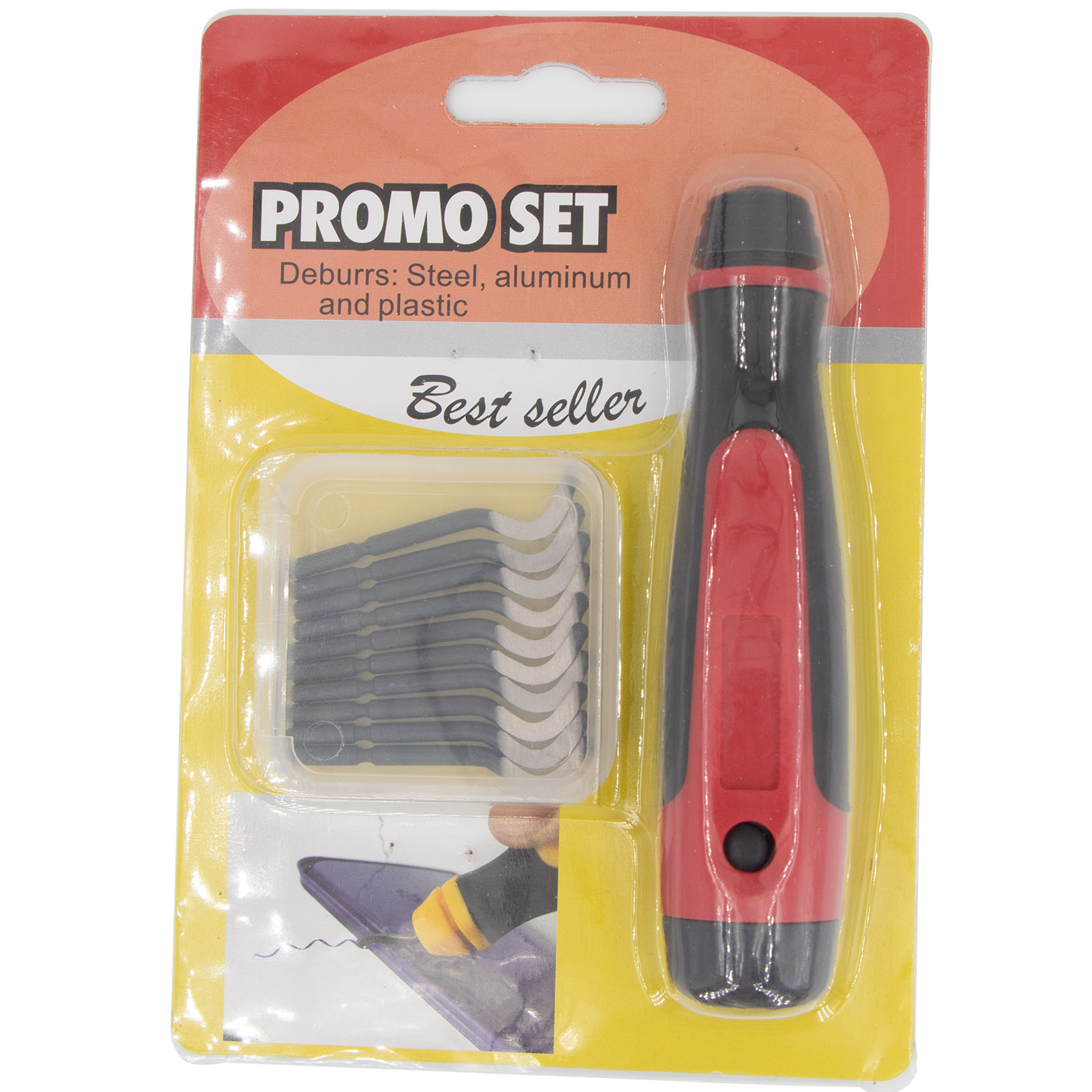 Type E Heavy Duty Deburring Tool Set With Deburring Holder And Deburring Blade
Type E Heavy Duty Deburring Tool Set With Deburring Holder And Deburring Blade -
 APKT Milling Insert For Indexable Milling Cutter
APKT Milling Insert For Indexable Milling Cutter -
 ANSI B94 HSS Jobber Length Drill Bits Fully Ground
ANSI B94 HSS Jobber Length Drill Bits Fully Ground -
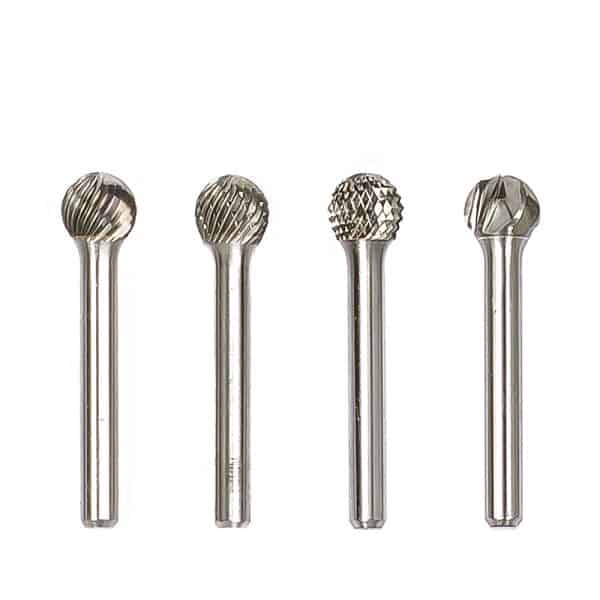 Type D Ball Tungsten Carbide Rotary Burr
Type D Ball Tungsten Carbide Rotary Burr -
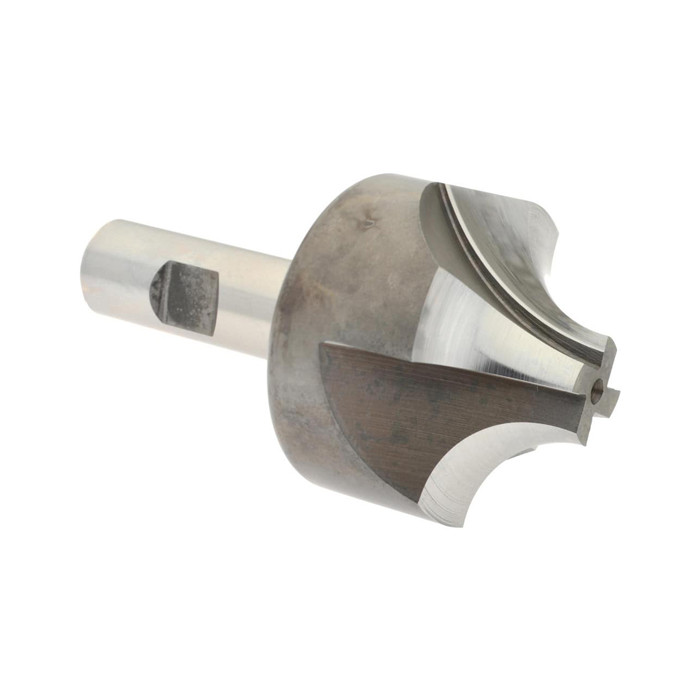 HSS Metric & Inch Corner Rounding End Mill For Industrial
HSS Metric & Inch Corner Rounding End Mill For Industrial -
 Inch HSS 1/2″ Reduce Shank Drill Bit For Metal Cutting Of High Precision
Inch HSS 1/2″ Reduce Shank Drill Bit For Metal Cutting Of High Precision -
 Type K-90 Degree Cone Tungsten Carbide Rotary Burr
Type K-90 Degree Cone Tungsten Carbide Rotary Burr -
 Outside Micrometer Set Of Inch & Metric With Rachet Stop
Outside Micrometer Set Of Inch & Metric With Rachet Stop -
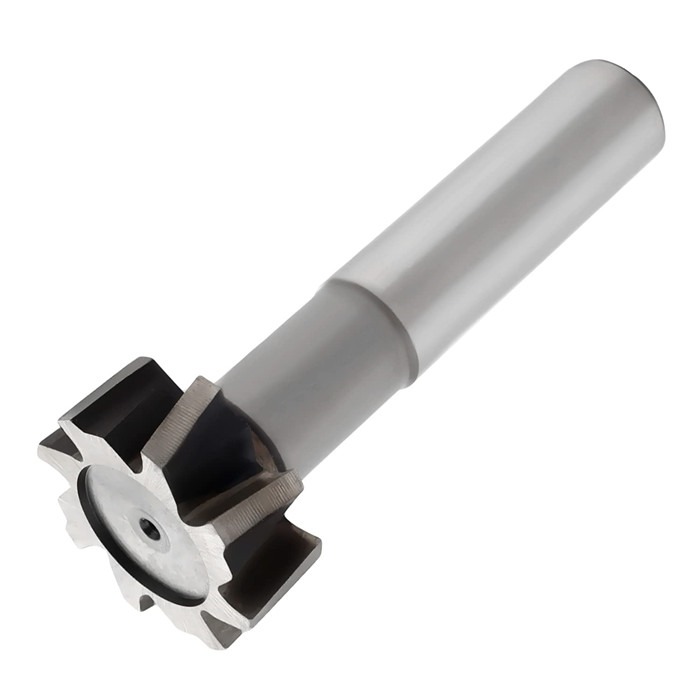 HSS Metric & Inch T Slot End Mill For Industrial
HSS Metric & Inch T Slot End Mill For Industrial -
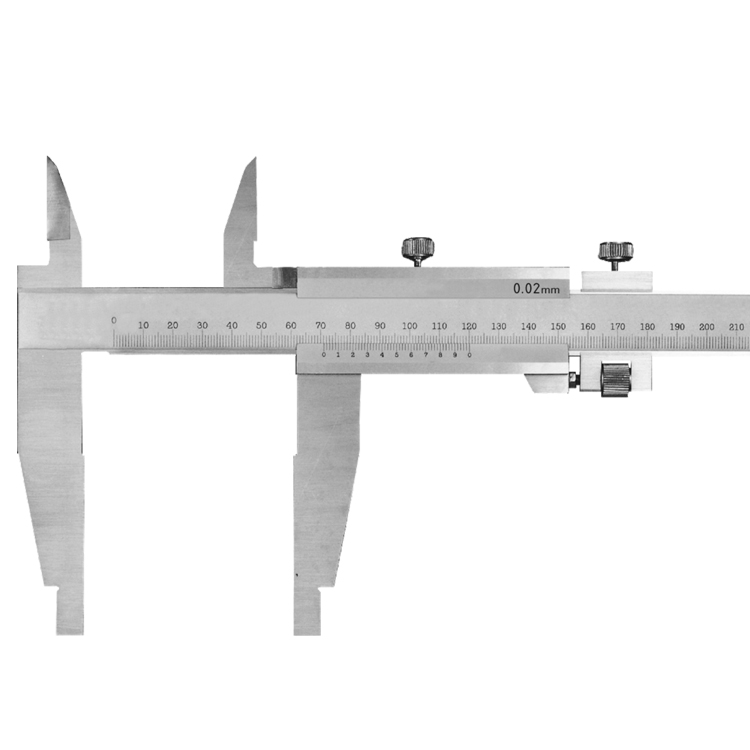 Precision Monoblock Vernier Caliper With Nib Style & Standard Style Jaws Of Metric & Imperial For Industrial
Precision Monoblock Vernier Caliper With Nib Style & Standard Style Jaws Of Metric & Imperial For Industrial





